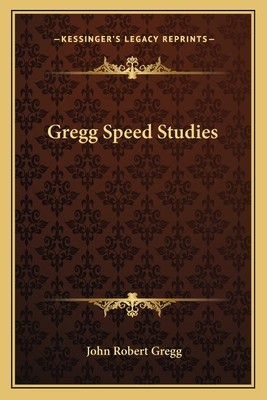
- We will send in 10–14 business days.
- Author: John Robert Gregg
- Publisher: Kessinger Publishing
- ISBN-10: 1162724994
- ISBN-13: 9781162724997
- Format: 22.9 x 15.2 x 1.8 cm, minkšti viršeliai
- Language: English
- SAVE -10% with code: EXTRA
Reviews
Description
1917. John Robert Gregg, a student of various shorthand systems, developed the most prolific method. He first introduced his system in 1888 in the pamphlet Light-Line Phonography published in Liverpool, England. In 1893, he published Gregg Shorthand in the United States. It was soon taught in public schools throughout the United States and adapted to several languages. The Gregg system modeled the mechanics and positioning of traditional writing and is still widely practiced today.
EXTRA 10 % discount with code: EXTRA
The promotion ends in 22d.11:03:25
The discount code is valid when purchasing from 10 €. Discounts do not stack.
- Author: John Robert Gregg
- Publisher: Kessinger Publishing
- ISBN-10: 1162724994
- ISBN-13: 9781162724997
- Format: 22.9 x 15.2 x 1.8 cm, minkšti viršeliai
- Language: English English
1917. John Robert Gregg, a student of various shorthand systems, developed the most prolific method. He first introduced his system in 1888 in the pamphlet Light-Line Phonography published in Liverpool, England. In 1893, he published Gregg Shorthand in the United States. It was soon taught in public schools throughout the United States and adapted to several languages. The Gregg system modeled the mechanics and positioning of traditional writing and is still widely practiced today.


Reviews